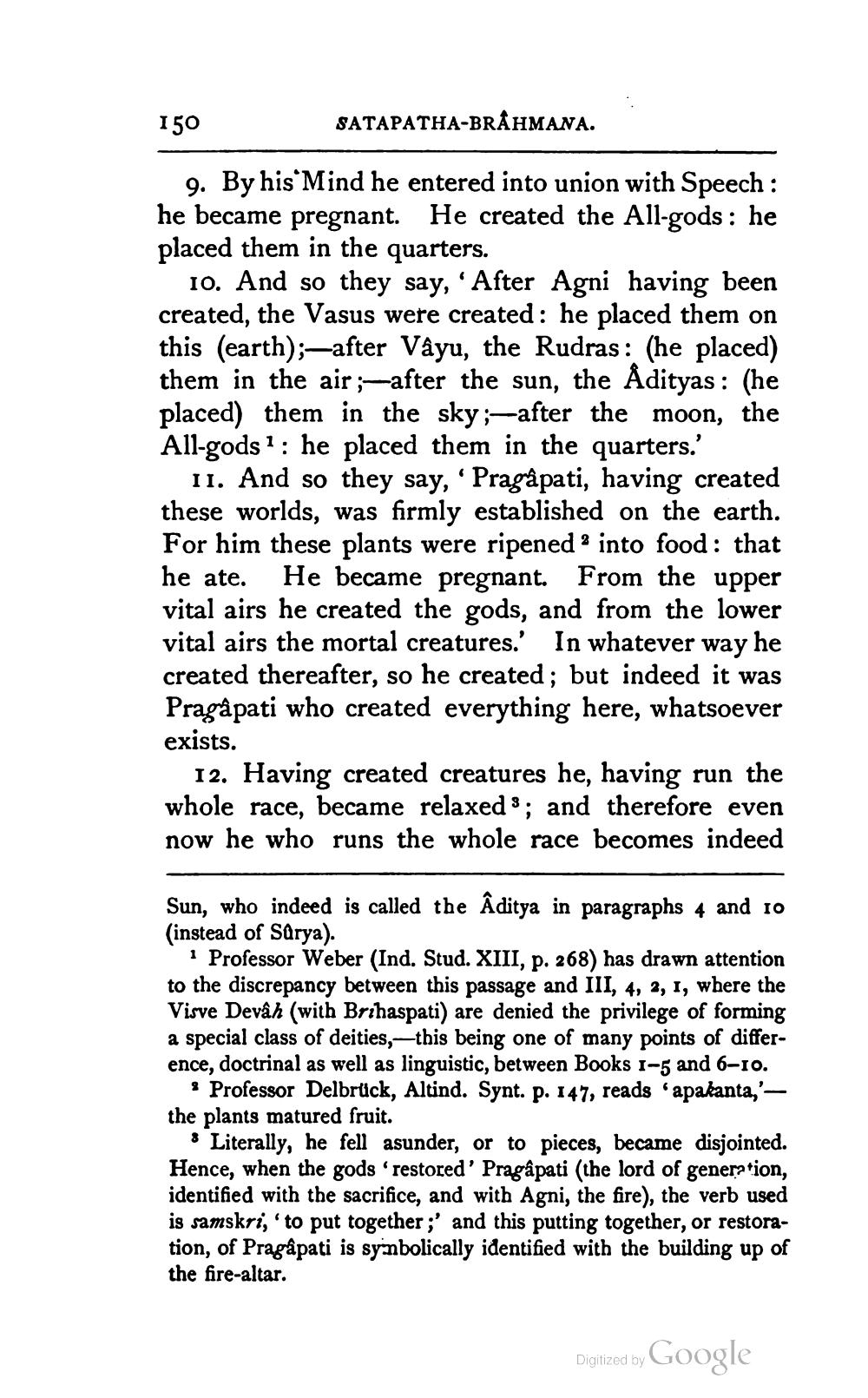________________
150
SATAPATHA-BRAHMANA.
9. By his Mind he entered into union with Speech : he became pregnant. He created the All-gods : he placed them in the quarters.
10. And so they say, 'After Agni having been created, the Vasus were created: he placed them on this (earth);—after Vâyu, the Rudras: (he placed) them in the air ;-after the sun, the Adityas: (he placed) them in the sky;-after the moon, the All-gods 1 : he placed them in the quarters.'
11. And so they say, ' Pragàpati, having created these worlds, was firmly established on the earth. For him these plants were ripened into food : that he ate. He became pregnant. From the upper vital airs he created the gods, and from the lower vital airs the mortal creatures.' In whatever way he created thereafter, so he created; but indeed it was Pragapati who created everything here, whatsoever exists.
12. Having created creatures he, having run the whole race, became relaxed ; and therefore even now he who runs the whole race becomes indeed
Sun, who indeed is called the Âditya in paragraphs 4 and 10 (instead of Sarya).
* Professor Weber (Ind. Stud. XIII, p. 268) has drawn attention to the discrepancy between this passage and III, 4, 2, 1, where the Visve Devâh (with Brihaspati) are denied the privilege of forming a special class of deities,—this being one of many points of difference, doctrinal as well as linguistic, between Books 1-5 and 6-10.
: Professor Delbrück, Altind. Synt. p. 147, reads "apakanta,'— the plants matured fruit.
Literally, he fell asunder, or to pieces, became disjointed. Hence, when the gods 'restored' Pragậpati (the lord of generation, identified with the sacrifice, and with Agni, the fire), the verb used is samskri,'to put together;' and this putting together, or restoration, of Pragâpati is symbolically identified with the building up of the fire-altar.
Digitized by Google




